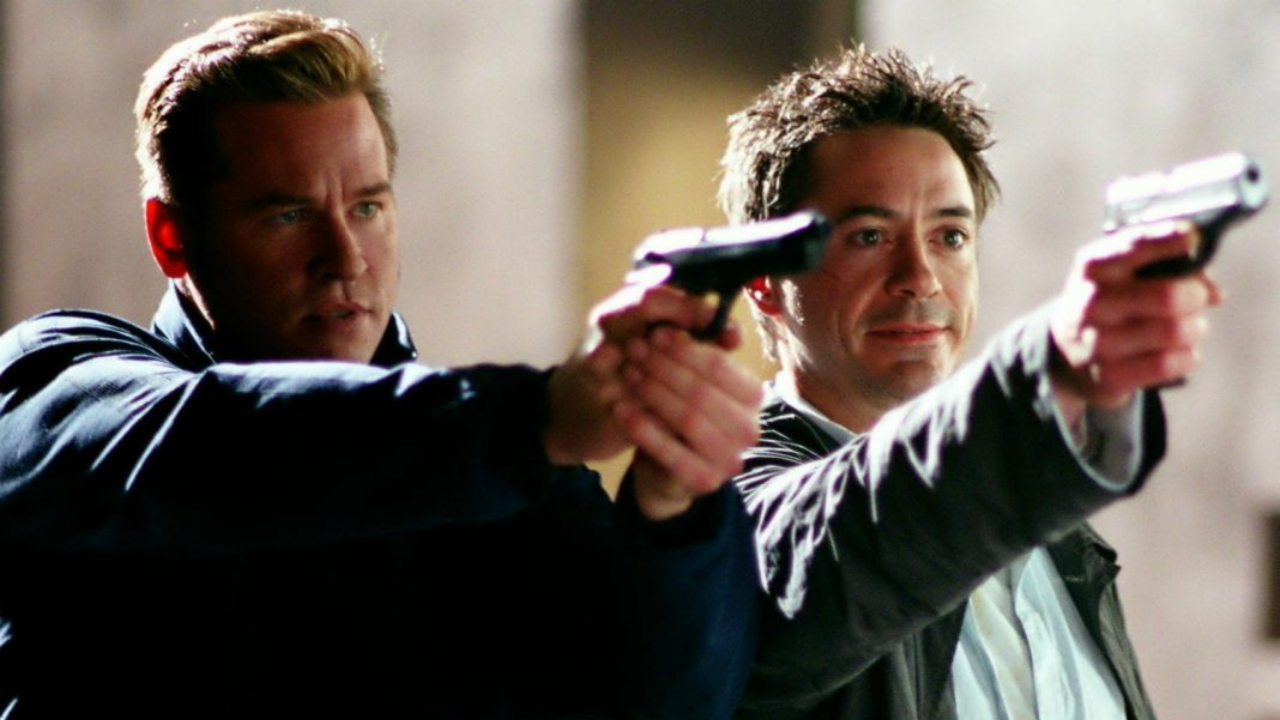Play Dirty Has A Much, Much Darker Ending Than Most Shane Black Movies, And The Director Explains Why It Was Totally Necessary
Spoilers!
Your Daily Blend of Entertainment News
You are now subscribed
Your newsletter sign-up was successful
SPOILER WARNING: The following article contains spoilers for Play Dirty. If you have not yet seen the film, proceed at your own risk!
If you’re a Shane Black fan, you know that the guy really loves his characters and, by extension, doesn’t like killing them off. From Samuel L. Jackson’s Mitch Henessey in the eternally underrated The Long Kiss Goodnight to Val Kilmer’s Gay Perry in the exceptional Kiss Kiss Bang Bang, he has an established history of saving his heroes at the last minute from what seems like certain death. That being said, it’s because of that history that the dark twist at the end of his new movie Play Dirty hits especially hard.
In the third act of the crime film (now available to all with an Amazon Prime subscription), our protagonists, led by Mark Wahlberg’s Parker, claim victory over a corrupt government and The Outfit… but there is still one job left to be done. Parker remains committed to getting revenge for the widow of his best friend, and while Rosa Salazar’s Zen proves to be a talented partner in a heist, that doesn’t make up for her treacherous actions. It’s a shock when we as an audience come to understand that he can’t let her live, but when I spoke with Shane Black virtual earlier this month during the Play Dirty press day, he explained why the dark note was wholly necessary:
I think the character in the books and to be true to it necessitated that we can have nods in the movie to the sort of more comic aspect of Westlake's books, the wry humor. But ultimately, Parker's a different character. He's a guy who goes by a code, a very specific one. And it's interesting 'cause even in our preview audiences, when people watch that, some of them were shocked, but they all knew why he did it.

As acknowledged by Shane Black, the principal vibe of Play Dirty is fun: the characters are both witty and smart, and it’s a joy to watch them do what they do best, fail, improvise in response to failure, and try again. But the writer/director made the movie because he’s long had a passion for the source material, and it would have been a betrayal to the nature of Parker’s character if he ended the movie choosing to let bygones be bygones and let Zen off the hook.
It still feels like an exceptionally dark twist, if not especially because Rosa Salazar is loaded with charisma and as fun to see work as any other member of the talented ensemble. But as Black notes, it’s clear why Parker has to do what he does.
That being said, the film doesn’t relish in the darkness. We don’t even actually get to see Parker complete his vengeance on behalf of Thomas Jane’s Philly Webb and Gretchen Mol’s Grace. When the last scene between Parker and Zen is coming to a close, the camera takes us out of her hotel room so that we don’t have to witness the gunshot (though we do hear it). Black, seated alongside producer Jules Daly, acknowledged that Zen’s death is not something that we either have to see or want to see, saying,
I think it's because you don't wanna be there for it. It's like in that Dirty Harry, the great shot where he's on the football field torturing a suspect, and the camera just goes, 'We don't wanna be here anymore.' And it just goes out and out and out into the sky and just leaves this horrific scene out of, you know, Dante's Inferno down on the field. You can step outside while he takes care of business.
It’s a tough goodbye, but it’s handled with grace, and it firmly fits Play Dirty into the decades long legacy of Parker on screen.
Your Daily Blend of Entertainment News

Eric Eisenberg is the Assistant Managing Editor at CinemaBlend. After graduating Boston University and earning a bachelor’s degree in journalism, he took a part-time job as a staff writer for CinemaBlend, and after six months was offered the opportunity to move to Los Angeles and take on a newly created West Coast Editor position. Over a decade later, he's continuing to advance his interests and expertise. In addition to conducting filmmaker interviews and contributing to the news and feature content of the site, Eric also oversees the Movie Reviews section, writes the the weekend box office report (published Sundays), and is the site's resident Stephen King expert. He has two King-related columns.
You must confirm your public display name before commenting
Please logout and then login again, you will then be prompted to enter your display name.
